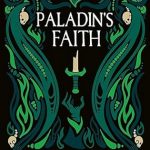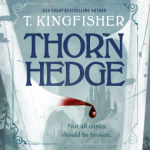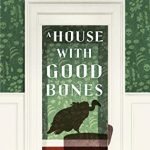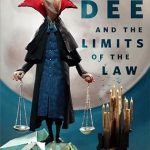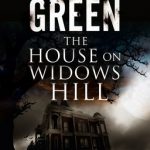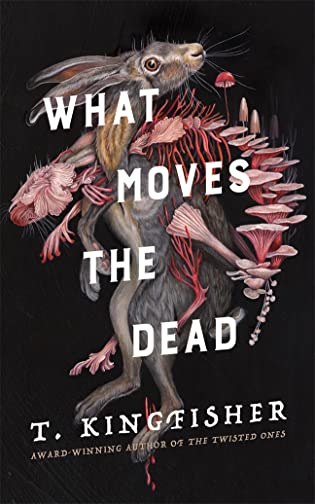 What Moves the Dead by T. Kingfisher
What Moves the Dead by T. Kingfisher Format: eARC
Source: supplied by publisher via Edelweiss
Formats available: hardcover, ebook, audiobook
Genres: horror
Series: Sworn Soldier #1
Pages: 176
Published by Tor Nightfire on July 12, 2022
Purchasing Info: Author's Website, Publisher's Website, Amazon, Barnes & Noble, Kobo, Bookshop.org, Better World Books
Goodreads
From the award-winning author of The Twisted Ones comes a gripping and atmospheric retelling of Edgar Allan Poe's classic "The Fall of the House of Usher."
When Alex Easton, a retired soldier, receives word that their childhood friend Madeline Usher is dying, they race to the ancestral home of the Ushers in the remote countryside of Ruritania.
What they find there is a nightmare of fungal growths and possessed wildlife, surrounding a dark, pulsing lake. Madeline sleepwalks and speaks in strange voices at night, and her brother Roderick is consumed with a mysterious malady of the nerves.
Aided by a redoubtable British mycologist and a baffled American doctor, Alex must unravel the secret of the House of Usher before it consumes them all.
My Review:
I always thought it was cordyceps that was generally responsible for the zombie apocalypse, but not this time. Or probably not this time. After all, even at the end, we don’t know which genus and species is making the dead move.
But there’s definitely a fungus responsible for everything that has gone wrong with the House of Usher in What Moves the Dead. Because the dead are definitely moving – even if the rational and even scientific minds of the late 19th century are having a seriously difficult time with the old Sherlock Holmes aphorism. You know the one I mean, the one that goes, “Once you eliminate the impossible, whatever remains, no matter how improbable, must be the truth.”
And the truth is that no one really wants to think about what is making so many of the animals around the house – and some of the humans inside it – move as if they are dead. Or even after they seem to be, well, dead.
Lieutenant Alex Easton, late of the Gallacian Army, has come to visit a dying friend. Whatever they expected to find in the house of Madeline and Roderick Usher, it wasn’t what they actually found. It’s been nearly 20 years since they’ve all seen each other, and there are days when Easton feels every single one of those years – but both Maddy and Roderick – who Easton knows are roughly their own age – look as if they’ve aged twice as many years as have actually passed.
And both their faces have the waxen pallor of imminent death.
Easton wants to find a cure – or at least a reprieve, and enlists the assistance of Maddy’s American doctor, a redoubtable local Englishwoman with an almost obsessive interest in mushrooms, and their own batman turned (ex-military) aide-de-camp and general factotum – who has carried them out of worse and deadlier scrapes than this one initially seems to be.
But initial impressions can be, and in this case certainly are, deceiving.
How does one even begin to fight a mushroom who wants to explore the world of humanity – one body at a time?
Escape Rating A+: This didn’t go any of the places I thought it would – even after reading a synopsis of Edgar Allan Poe’s classic short story, The Fall of the House of Usher. (I know I read it in school, but that was a long time ago.)
I’ll admit that there were points where I kind of expected Cthulhu to rise out of that damn lake. The Great Old One might honestly have been a relief. At least Cthulhu is a creature that retired soldier Easton might have a hope of fighting.
While I don’t generally like horror, I very much do like T. Kingfisher’s work, as evidenced by my reviews of Nettle & Bone, A Wizard’s Guide to Defensive Baking and Paladin’s Grace. I like her stuff even when I’m not all that fond of the genre it’s in, like this book and The Hollow Places.
What made this work for me is that it’s very much the author’s voice – which means that the story is driven by its signature characters. Not that there’s not a strong sense of creeping dread through the whole thing, but rather than the creep and the dread and the reason to keep going through both of those feelings is that the reader is invested in the characters – especially Easton and that redoubtable English mycologist, Eugenia Potter.
It’s Easton’s head that we’re in throughout the story, and it’s a fascinating place to be. For one thing, they never take themselves too seriously. And they are very good at thinking but not actually saying all the things that give the reader plenty of rueful laughs, generally at Easton’s own expense. They aren’t the hero of this tale, and they don’t pretend to be. But they ARE the person who gets things done – always with the fully acknowledged assistance of their friends, comrades and fellow travelers.
One of the bits that made them so much fun as a character is the way that their very existence both pokes fun at gender norms and exposes them for the idiocy that they frequently are at the same time. It’s not always easy for them to deal with, but it is in its own unique way simple. They are, due to a peculiarity in their native language, a soldier. And soldier is a non-gendered pronoun in Gallacian. (So what they have in their pants or what they prefer in their bed is immaterial to their address and identification – except to the impolitely curious.)
As a reader, I didn’t need the answers to those questions. I simply liked Easton, their perspective and their attitude, quite a lot and wouldn’t mind at all if they turned up in another one of the author’s works.
Because I’ll be there for it. No matter what is making the dead move the next time around. Or, for that matter, the living.










